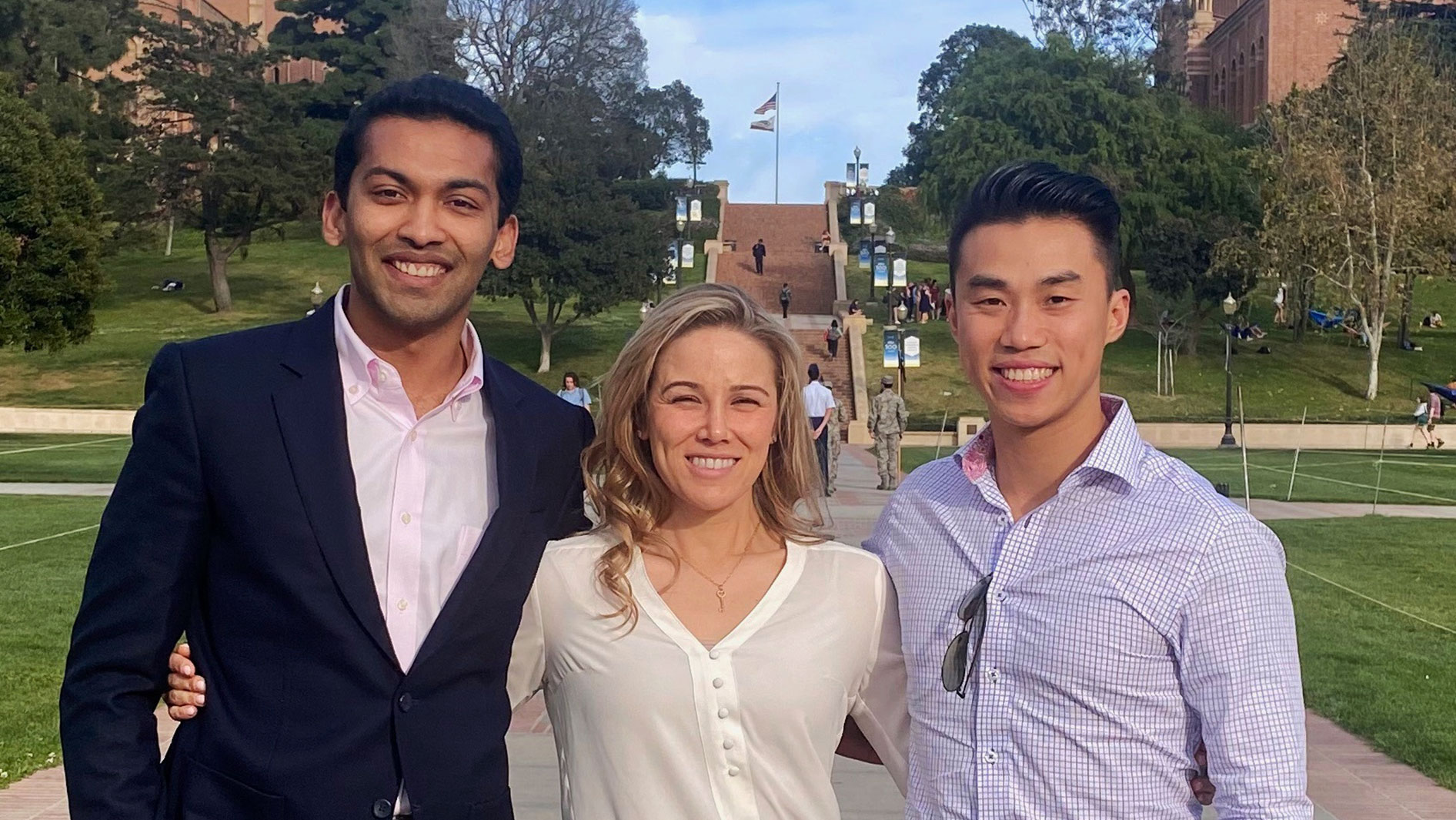Share Article
When Dhananjay Chhatre was tasked with helping recruit new candidates to Gilead, he immediately thought of a unique way to attract talented individuals: business case competitions. As a graduate of business school, Dhananjay saw firsthand the power of these competitions, a type of academic contest where students are asked to solve a real-world business scenario or problem.
“While getting my MBA, I saw that the case competition teams that found success not only worked together efficiently and communicated well, but also leveraged the diversity of thought of their members to approach cases in new and creative ways,” Dhananjay, Director of Project and Portfolio Management, explains. “Now at Gilead, I’m on the lookout to bring in future candidates with these skills and to increase our name recognition at top university graduate programs.”
As a way to bring in talented individuals and assess their critical thinking, communication and teamwork skills, Dhananjay helped Gilead launch its first case competition late last year with support from a member of his team, Michael Calcagno, Manager of Project and Portfolio Management. They pulled together a contest based on a real-world example that focused on Gilead’s acquisition of Immunomedics.
Even with limited outreach, interest from schools and students was high: 38 teams from 15 universities across the U.S. entered the competition. In the end, three students from the UCLA Anderson School of Management – Nikkhil Vinnakota, Jacquelyn Maxton and James Feng – took home the winning prize (see photo above).
“We asked the students to analyze how the two companies integrate, particularly from a research and development perspective. What do company leaders need to consider?” Dhananjay says.
For Nikkhil, Jacquelyn and James, it was the first time they’d worked on a case competition and considered such questions. The three students in the fully-employed MBA program each brought to the table experiences from working in different fields during the day before their classes at night: Nikkhil in pharmaceuticals, Jacquelyn as a nurse and James in life science consulting.
“We wanted to not only get the experience of going through a biotech case process, but also see how far we could go,” James says. “We took time to critically think things through – like what do these organizations need due to this transition?”
The case had a short deadline – the students had two weeks to prepare a presentation – and the team chipped away at it during evenings and weekends.
When five finalists had been selected, Dhananjay and Michael threw in a twist.
“Leaks happen all the time,” Dhananjay says. “We gave them three days to come up with a plan for if the integration plan got leaked.”
“We worked really hard on it,” says Jacquelyn.
The team’s efforts paid off. Dhananjay says the judges were impressed by the students’ strong insights regarding transition prioritizations, inclusion of culture within the integration and clear risk-mitigation plan.
“What stood out was their logic,” he says. “The students thought through the problems and addressed all of the aspects of an integration plan.”
In the months since, the three winners have gone on to enter other competitions, and it has deepened their interest in the healthcare and biotech industries.
As for Gilead, this case competition is just the beginning. Dhananjay and his team are preparing for another one in November, and they’re planning to target more universities, be more strategic in their outreach to students and use the event as a way to identify potential job candidates. Some selected students participating in these Gilead contests will be offered internships and potentially be pipelined for full-time opportunities after they graduate.
“There are a lot more schools we’re interested in,” Dhananjay says. “We’re going to reach out to a range of university clubs to expand the net of new hires. We ultimately hope that these contests can help us find and build a network of undiscovered talented individuals.”
Photo: Pictured from left to right are Nikkhil Vinnakota, Jacquelyn Maxton and James Feng. The picture was taken before COVID-19 mitigation efforts on campus.

